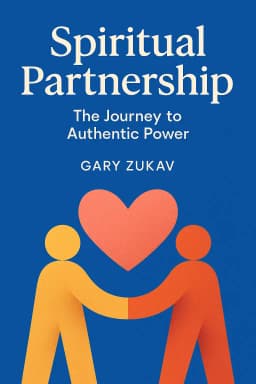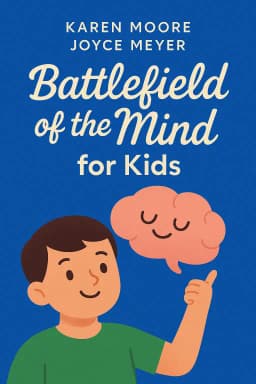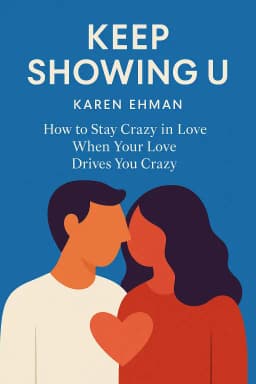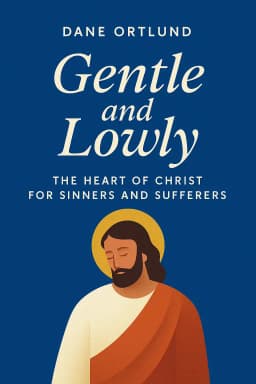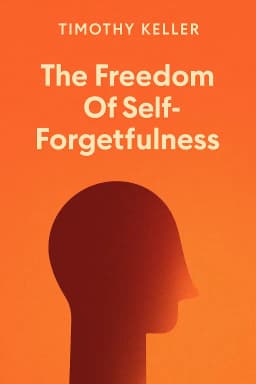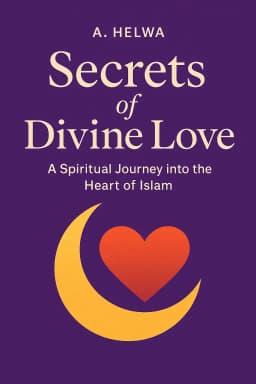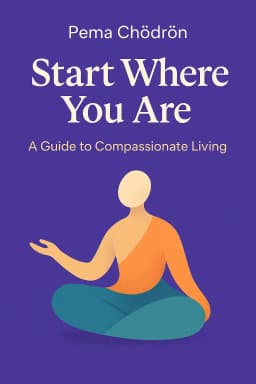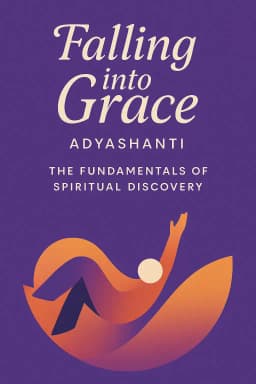
Addicted to Suffering?
Golden Hook & Introduction
SECTION
Daniel: Okay, Sophia. Falling into Grace. Five-word review. Go. Sophia: Your suffering is… totally optional. Daniel: Ooh, bold. Mine is: "Stop trying. Just fall. Ouch." Sophia: "Ouch?" That's an interesting addition. I feel like we need to unpack that. It doesn't sound very graceful. Daniel: It’s the beautiful, messy paradox at the heart of today’s book. We are unpacking Falling into Grace by Adyashanti. And what's fascinating about Adyashanti is that he started as Stephen Gray from Cupertino, California, and was a competitive athlete before diving headfirst into Zen Buddhism. That intensity, that drive, really shapes his perspective on letting go. Sophia: Right, it's not a passive 'go with the flow' vibe. It sounds more like an extreme sport of surrender. And the book is highly rated, but some readers find his idea of 'grace' a bit... slippery. A little vague. So I'm excited to get into it. Daniel: It’s a fair point. But to understand what he means by grace, we first have to understand why we need it in the first place. And that starts with what he calls the fundamental human dilemma.
The Human Dilemma: Why We're Addicted to Suffering
SECTION
Daniel: Adyashanti tells this incredible story from when he was about seven or eight years old. He's watching the adults in his life—loving people, good people—and he just can't figure out why they're always in conflict, why they seem to suffer so much. Sophia: I think every kid has that moment. You look at the adult world and it just seems needlessly complicated and stressful. Daniel: Exactly. And after observing for a while, he has this lightning-bolt epiphany. He realizes, "Oh my gosh! Adults believe what they think! That’s why they suffer!" He literally concludes that adults are, in a way, insane. Sophia: Wow. That’s a heavy insight for a seven-year-old. But it’s so true. My thoughts feel like reality. If I think, "I'm going to fail this presentation," that thought feels like a premonition, like a fact. How can you not believe your thoughts? Daniel: Well, that's the trap. He quotes the philosopher Krishnamurti, who said, "When you teach a child that a bird is named ‘bird,’ the child will never see the bird again." Once we label something, we stop experiencing it. We experience the label. Sophia: We see the concept, not the thing itself. Like seeing the word "tree" in your mind instead of the actual, weird, magnificent thing growing in your yard. Daniel: Precisely. And we do this with everything, most importantly, with ourselves. We build an identity out of thoughts, memories, and opinions. This creates what Adyashanti calls the "egoic trance"—a dream state where we're living inside our heads, disconnected from the raw, direct experience of life. Sophia: Okay, I can see that. We're all sleepwalking through our own mental narratives. But he takes it a step further, right? He suggests we actually get something out of this suffering. Daniel: He does. He tells a story about his dog. If you step on his dog's paw, the dog might yelp and be upset for a minute, but then it just shakes it off and goes back to being happy. Humans, on the other hand, will hold onto a slight from ten years ago. We carry it. Sophia: Why? Why would we do that? It sounds exhausting. Daniel: Because the ego, that false self we've constructed, needs conflict to survive. It thrives on being right, on being wronged, on having a story. It defines itself through struggle. So, in a very real way, he argues we become addicted to our own suffering. It gives us a solid sense of 'me'. Sophia: That is a deeply uncomfortable thought. That I might be choosing to be miserable because it makes me feel more… real. It’s like a bad social media algorithm that keeps feeding you outrage because it knows you'll engage. Daniel: That’s a perfect analogy. The ego is that algorithm. And it keeps us locked in a state of separation, anxiety, and constant striving. We're always trying to fix or improve this imaginary self, never realizing that the self itself is the source of the problem. Sophia: So we're addicted to suffering and trapped in a trance. Sounds bleak. How on earth do we get out? It can't be as simple as just deciding to 'stop.'
The Path of Unraveling: The Messy Work of Letting Go
SECTION
Daniel: It’s not. And the way out is completely counter-intuitive. It’s not about fighting your way out, it’s about surrendering. But not in a passive way. It's a fierce surrender. Sophia: "Fierce surrender." I like that. What does it look like in practice? Daniel: He tells this incredible story about a man who got polio as a child. The symptoms reemerged in adulthood, leaving him in chronic, agonizing pain. He was on heavy painkillers, just trying to manage his existence. Sophia: That sounds awful. The definition of a life sentence of suffering. Daniel: Absolutely. But one day, he's reading a book and comes across a single line: "It's not necessary to resist pain." And that sentence just hits him. It's not a thought; it's a full-body realization. He stops fighting the pain. He doesn't try to make it go away; he just lets it be there. Sophia: And what happens? Daniel: His experience of the pain shifts dramatically. He tells his doctor that the pain is still there, but the suffering is mostly gone. He’s able to drastically reduce his medication. He realized that pain is an inevitable part of life, but suffering is what we add on top of it with our resistance, with our story that "this shouldn't be happening." Sophia: Okay, that makes sense for physical pain. But what about deep emotional pain? Like rage, or grief, or betrayal? You can't just 'not resist' that, can you? It feels like it would consume you. Daniel: That’s the other side of this fierce surrender. It’s not just about peaceful acceptance. Sometimes, it's about letting the monster out of the cage. He worked with a woman at a retreat who was just consumed by this free-floating rage. She was judging everyone, resenting everything. Sophia: I think we’ve all felt a version of that. Daniel: So Adyashanti does something brilliant. He says to her, "I don’t want to talk to you. I want to talk to your rage." He asks her to give the rage a voice. And at first, she's hesitant, but then it just comes pouring out—all this toxic, blaming, vicious stuff. Sophia: That sounds terrifying. For her and for him. Daniel: It was. But as she let it speak, something shifted. Underneath the rage, a softer voice emerged. It was a voice of deep, profound hurt and sorrow. By letting the rage have its say, she finally got to the root of it. She wasn't just resisting the rage; she was finally experiencing it fully. Sophia: So you have to stop resisting the feeling, but also give it a voice? How do you do both? That feels like a paradox. Daniel: The key is to separate the raw energy of the emotion from the conclusion your mind draws about it. He gives another example of a woman who felt abandoned by her mother as a child. The story she told herself for decades was, "My mother should have been more kind to me." That "should have been" is the conclusion. It's the argument with reality. Sophia: And that argument is what keeps the suffering alive. Daniel: Exactly. He asked her to recall the memory without the story. Just the raw facts of the event. And when she did, the emotional charge began to dissolve. The pain was still a memory, but the suffering, the endless loop of resentment, started to break. It’s about letting go of the argument with what was.
Beyond Suffering: True Autonomy and Falling into Grace
SECTION
Daniel: And once you start dropping those stories, something incredible happens. You find that awakening isn't the end of the road. It's the beginning of something else. Sophia: What do you mean? I always thought enlightenment or awakening was the final goal. You reach it, and you're done. You float on a cloud of bliss. Daniel: That's a common misconception. Adyashanti argues that awakening is the ground from which what he calls "True Autonomy" begins to flower. And he uses two of the most famous spiritual figures in history to make his point: Jesus and the Buddha. Sophia: Okay, now I'm intrigued. How do they fit in? Daniel: We tend to picture them as these serene, otherworldly saints. But Adyashanti points out how radically, messily human they were, especially after their awakenings. Buddha didn't just sit under the Bodhi tree in bliss forever; he got up and engaged with the world for decades. And Jesus wasn't just calmly turning the other cheek; he was flipping over tables in the temple! He was feeling anguish in the Garden of Gethsemane. Sophia: He was fully engaged in the drama of life. Daniel: Yes! Their freedom wasn't a "freedom from life." It was a "freedom to live life" with total authenticity, without the filter of the ego. That's true autonomy. It’s spirit fully inhabiting a human life, with all its messiness, anger, and heartbreak. It’s not about escaping the human condition, but embodying it with divine awareness. Sophia: So what does 'falling into grace' actually mean then? Is it achieving this autonomy? Daniel: It's the force that allows it to happen. Grace, in his view, is anything that helps us open. And it's not always gentle. The boulder that fell on a Tibetan teacher's legs, crippling him but forcing him to turn inward and find freedom? That was grace. Adyashanti's own moment of total defeat in his meditation hut, where he felt like a complete failure right before his heart flowered with love? That was grace. Sophia: So grace can be fierce. It can be the thing that breaks you open. Daniel: It can. And it can also be incredibly tender. He tells a beautiful story about when his dog died. He was just gutted, weeping uncontrollably. And in the midst of that overwhelming grief, he said he felt a tiny "pinprick of light" in his heart. It didn't erase the sorrow, but it coexisted with it. It was this sense that, even in the deepest darkness, all is well. Sophia: That’s a beautiful image. A pinprick of light. It’s not a floodlight that erases the darkness, but a tiny spark that changes everything. Daniel: That's grace. It's not about getting rid of the difficult parts of life. It's about finding the boundless space of peace that can hold all of it—the joy, the grief, the anger, the love. It’s falling into the center of the present moment and realizing you were already home.
Synthesis & Takeaways
SECTION
Sophia: So the journey he describes isn't about escaping suffering to find some peaceful, static state. It's about falling through our suffering, letting go of our arguments with reality, and discovering a freedom on the other side that's not peaceful in a passive way, but fiercely, actively alive. Daniel: Exactly. The book leaves us with a powerful question: What would happen if, just for a moment, you dropped your argument with reality? Not to fix it, not to improve it, but just to see what's there when the fight stops. Sophia: It’s a profound thought. And it feels like a practice, not a one-time decision. We'd love to hear what resonates with you all. Join the conversation on our socials and share your own 'pinprick of light' moments—those times when grace showed up in an unexpected way. Daniel: This is Aibrary, signing off.
